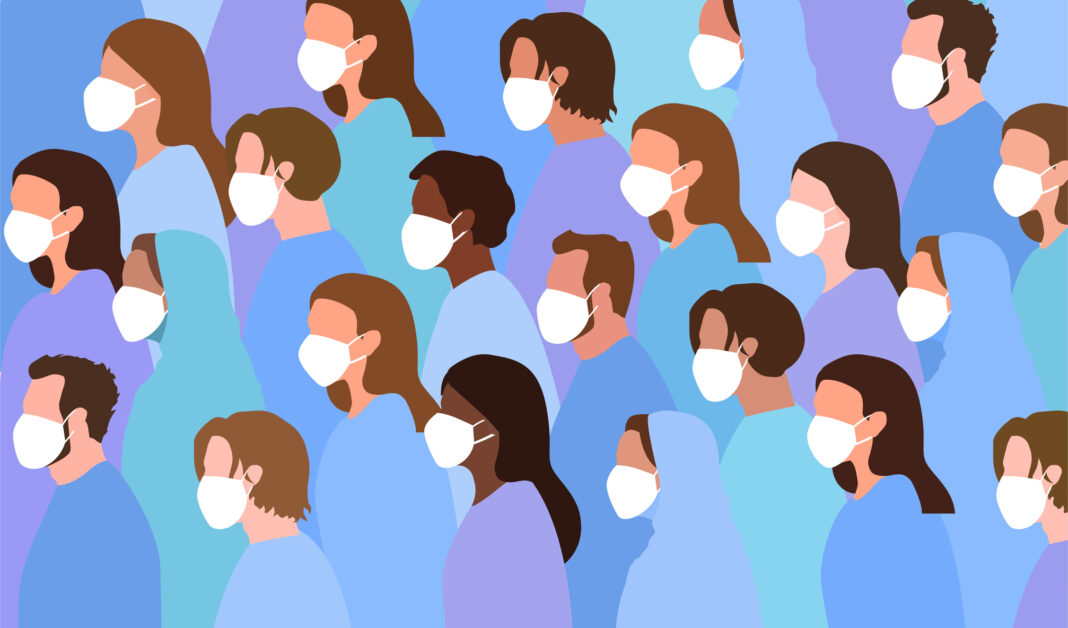The Princeton Area Community Foundation awarded over $2 million to more than 50 local nonprofits in its second phase of COVID-19 Relief & Recovery Grant funding activities. Grants were awarded to organizations focused on immediate needs such as food insecurity, healthcare, housing, mental health and other social service needs, as well as to helping children in the region continue educational activities and reduce learning loss.
Grant recipients includes a collaboration between two local nonprofits, the Trenton Area Soup Kitchen and the Rescue Mission, that worked together to open the Trenton Collaborative Warming Center, providing warmth, meals and referral services to those in need, while adhering to social distancing and safety protocols.
A grant to the Foundation for Educational Administration provided some funding to support a healing-centered education pilot program in 25 schools. The Community Foundation collaborated with four other funders to address needs of students affected by adverse childhood experiences (ACEs.) Through this program, school staff will be able to identify those students and work with them to help them respond to stressors and support healing from trauma.
The Trenton Health Team (THT), was one of more than 50 agencies that also shared over $1 million in funding awarded in Phase 1 of the Community Foundation’s COVID-19 grants program.
Last year, the Community Foundation helped fund THT’s convening efforts of Trenton area food stakeholders, who met consistently to coordinate distribution of food throughout the city. As a result of this collaborative, THT developed a data-driven analysis of the city’s food distribution system. That led to the creation of tools, like the website www.trentonhealthteam.org/food, which tracks and analyzes local food needs and increases the coordination of demand and deliveries between agencies. Now, in Phase 2, the team has been awarded a grant to do similar work countywide.
Grants were also awarded to nonprofits that are working in the community to prevent food insecurity and evictions and have reported significant increases in demand for their services.
Arm In Arm is seeing both a rise in demand at its food pantry and an increase in operating costs. When the pandemic hit, the agency began offering a grocery delivery option. The agency is also required to conduct daily health screenings at its pantries, buy PPE and additional cleaning supplies, and keep the pantries’ doors open constantly to increase air flow – which also increases utility costs.
Because many workers have lost their jobs or had their work hours reduced because of the pandemic, Housing Initiatives of Princeton is working to prevent a surge in evictions once the eviction moratorium is lifted. It has almost tripled its investment in its Emergency Rental Assistance Program, which provides one-time payments to landlords to cover rental arrears.
In addition to the grants focusing on immediate needs, more than a dozen nonprofits received organizational capacity-building grants for work aligned with nonprofit recovery and rebuilding.
For 30 years, the Community Foundation has harnessed its expertise in local philanthropy to connect donors with causes they care about and provide grants and educational opportunities to nonprofits that serve the region.
In the early days of the pandemic, the Community Foundation partnered with other foundations, companies and charitable individuals to assist nonprofits. The late Betty Wold Johnson, George H. and Estelle M. Sands Foundation, Robert Wood Johnson Foundation, The Bunbury Fund, The Burke Foundation, Princeton University, Geraldine R. Dodge Foundation, the Fund for Women and Girls, NJM Insurance Group, Horizon Foundation for New Jersey, Princeton University Class of 1965, Janssen, Billtrust, Bristol Myers Squibb Foundation, Princeton Regional Chamber of Commerce Foundation, Glenmede, Bryn Mawr Trust and Investors Foundation were among the major funders.
While the Community Foundation raised more than $2.6 million for COVID Relief and Recovery, the need is much greater. In this second phase, the funds were augmented because of a collaboration with other grant-making funds at the Community Foundation, which includes The Bunbury Fund, the Community Impact Grants/The Burke Foundation Legacy Grants and the Fund for Women and Girls.
“Our region has been devastated by the economic effects of the pandemic,” said Jeffrey M. Vega, President & CEO of the Community Foundation. “In this round of grant-making, we supplemented our COVID-19 Fund with grant dollars from several of our other grant-making programs so we could help fund the work of many nonprofits.”
Prior to launching a third Phase of COVID-19 Relief and Recovery funding, the Community Foundation plans to engage community members and organizations to better understand existing needs in the region. Intelligence gathered from this activity will inform the focus of the next wave of funding.
“Following a year that has wreaked havoc on our communities, in our third round of grant-making, we hope to help local nonprofits continue on a path to rebuilding,” said Sonia Delgado, a Community Foundation Trustee who recently became Chair of the COVID-19 Fund Grants Evaluation Team. “We’re grateful for the donations we’ve received, and we hope that more members of our community will consider contributing to the Fund so we can help as many of our neighbors as possible.”
In addition to the COVID-19 Fund, the Community Foundation is hosting the New Jersey Arts and Culture Recovery Fund, which to date has raised $3.7 million, helping schools through its All Kids Thrive program, which is working to help students with connectivity and other needs, and has funded COVID-19 relief nationwide with more than $2 million in grants issued through its Donor Advised Funds. To learn more or donate: visit www.pacf.org.





